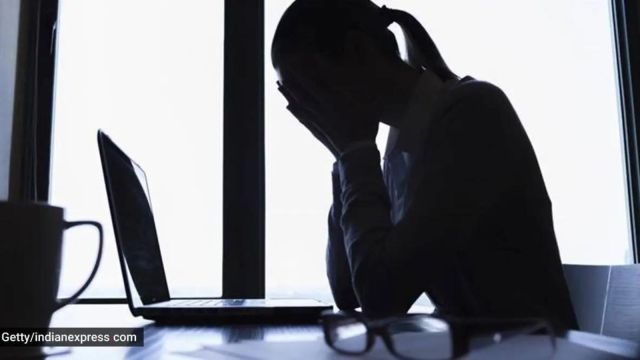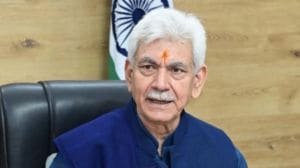How workplace stress is everywhere: What are things to do while in office?
In Ahmedabad, PSU, healthcare staff, diamond polishers and multi-taskers seek mental health counselling
 Dr Bachech argues that people are not just engaged in multi-tasking at their primary workplace, they are also involved in other earning avenues such as the stock market, multiple jobs or moonlighting. (File)
Dr Bachech argues that people are not just engaged in multi-tasking at their primary workplace, they are also involved in other earning avenues such as the stock market, multiple jobs or moonlighting. (File)A young IT professional in her 20s was rushed to Ahmedabad’s HCG Hospital recently after she overdosed on sleep medication. Originally from Jaipur and living alone in Ahmedabad, workaholism had consumed her as she replaced her loneliness with it, only to sink deeper into depression.
Dr Hansal Bachech, HOD of psychiatry, who evaluated her, says that workplace stress was a top-up pressure and with loneliness, could be a dangerous trigger, especially for the out-of-towner working professional. “The lethal combination of being overwhelmed by work and the lack of space to ventilate feelings or time to engage in recreational activities can be very dangerous. I was surprised to know that even though her work profile allowed for a ‘work from home’ status, the woman didn’t want to return to her conservative family in Jaipur. She was fleeing that toxicity. Often workplace stress exacerbates an existing and unattended problem,” says Dr Bachech.
He is now helping her build social interactions, connect with peers in the city and stick to time slots rather than procrastinate.
NOT JUST A CORPORATE CULTURE, OVERWORK IS EVERYWHERE
Pravin Valera, mentor at the Jeevan Aastha helpline of Gujarat Police in Gandhinagar, gets work stress-related calls from across the socio-economic spectrum. “We get a lot of distress calls from diamond polishers working in cramped factories and under financial duress,” he adds.
Similarly, psychiatrists are also increasingly getting distress pleas from public sector employees, especially in the healthcare and security sectors. Dr Minakshi Parikh, HOD of Psychiatry at Ahmedabad Civil Hospital, says, “Medical students feel weighed down by studies, tests and scores, healthcare workers fear mistakes in the hospital, conflicts with patients’ caregivers and with peers. The silver lining is that they are seeking mental health counselling and resolution.”
IS THE PRESSURE OF MULTI-TASKING GETTING TO US?
Dr Bachech argues that people are not just engaged in multi-tasking at their primary workplace, they are also involved in other earning avenues such as the stock market, multiple jobs or moonlighting. “Their attention is so divided that it increases pressure. Now phones are their relaxation. The subsequent lack of physical activity, connection with other people and family puts extra pressure on mental health. What good is disposable income if you do not have disposable time?” he says.
WHAT RELAXATION MEASURES CAN BE TAKEN?
While lifestyle corrections are a must, in the end it is up to the working professional to create time and space for them, feels Dr Shaunak Ajinkya, psychiatrist at Kokilaben Dhirubhai Ambani Hospital, Mumbai. “Avoid taking work home or responding to emails outside of working hours. Communicate with your manager about workload and expectations to ensure they are realistic and manageable,” he says.
He also suggests relaxation methods like personalising the workspace and making it more comfortable. “This can include adjusting lighting and ergonomics and minimising distractions. Take five-minute breaks in between spells of work to recharge and maintain focus. Pursue one hobby over the weekend and factor in one outdoor activity like swimming or hiking. Maintain a gratitude journal daily and write three good things that happened to you that day. Concentrate on aspects of work you can control and try not to dwell on things beyond your control,” he suggests. But talking is necessary, be it with trusted family members, peers, or in support groups, online or offline. Ultimately consult a mental health expert.





- 01
- 02
- 03
- 04
- 05


























